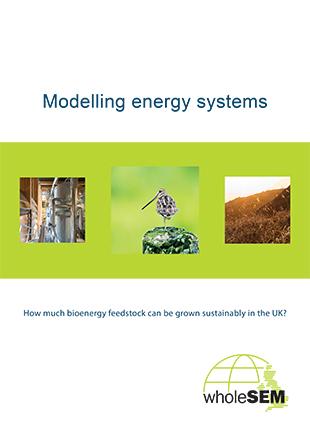 The wholeSEM project has released a new report: Modelling energy systems - How much bioenergy feedstock can be grown sustainably in the UK? The report is the outcome of a workshop held at the Department of Engineering at the University of Cambridge on 30 September - 01 October 2014. The workshop brought together 40 stakeholders involved in bioenergy and natural resource management from research, academia, industry, agriculture, civil society groups and government agencies.
The wholeSEM project has released a new report: Modelling energy systems - How much bioenergy feedstock can be grown sustainably in the UK? The report is the outcome of a workshop held at the Department of Engineering at the University of Cambridge on 30 September - 01 October 2014. The workshop brought together 40 stakeholders involved in bioenergy and natural resource management from research, academia, industry, agriculture, civil society groups and government agencies.
The report suggests that it should be possible to commit up to 900,000 hectares to bioenergy feedstock production in the UK without undue land stress, with limited impact on biodiversity and a net benefit in reducing GHG emissions. However, the question of whether the UK will develop bioenergy production up to this level depends on a combination of government and business actions and on the farmers’ perceptions of longterm policy, subsidies or contracts. Additionally there is a need for in-depth field observations that provide evidence of the environmental benefits and other negative impacts that could result from deploying bioenergy at this scale. Policy discussions and future development of energy models should in future address the physical constraints on total land commitment in the UK, a wider range of sustainability criteria in the assessment of impacts of bioenergy production, uncertainty about the consequences of UK imports, and the requirements for long-term incentives to drive significant change in agricultural practice.
wholeSEM is led by University College London and consists of Imperial College London, the University of Cambridge and the University of Surrey. There is further significant engagement with stakeholders in academia, government and industry.
wholeSEM is funded by EPSRC from July 2013 to June 2017 (EP/K039326/1).
